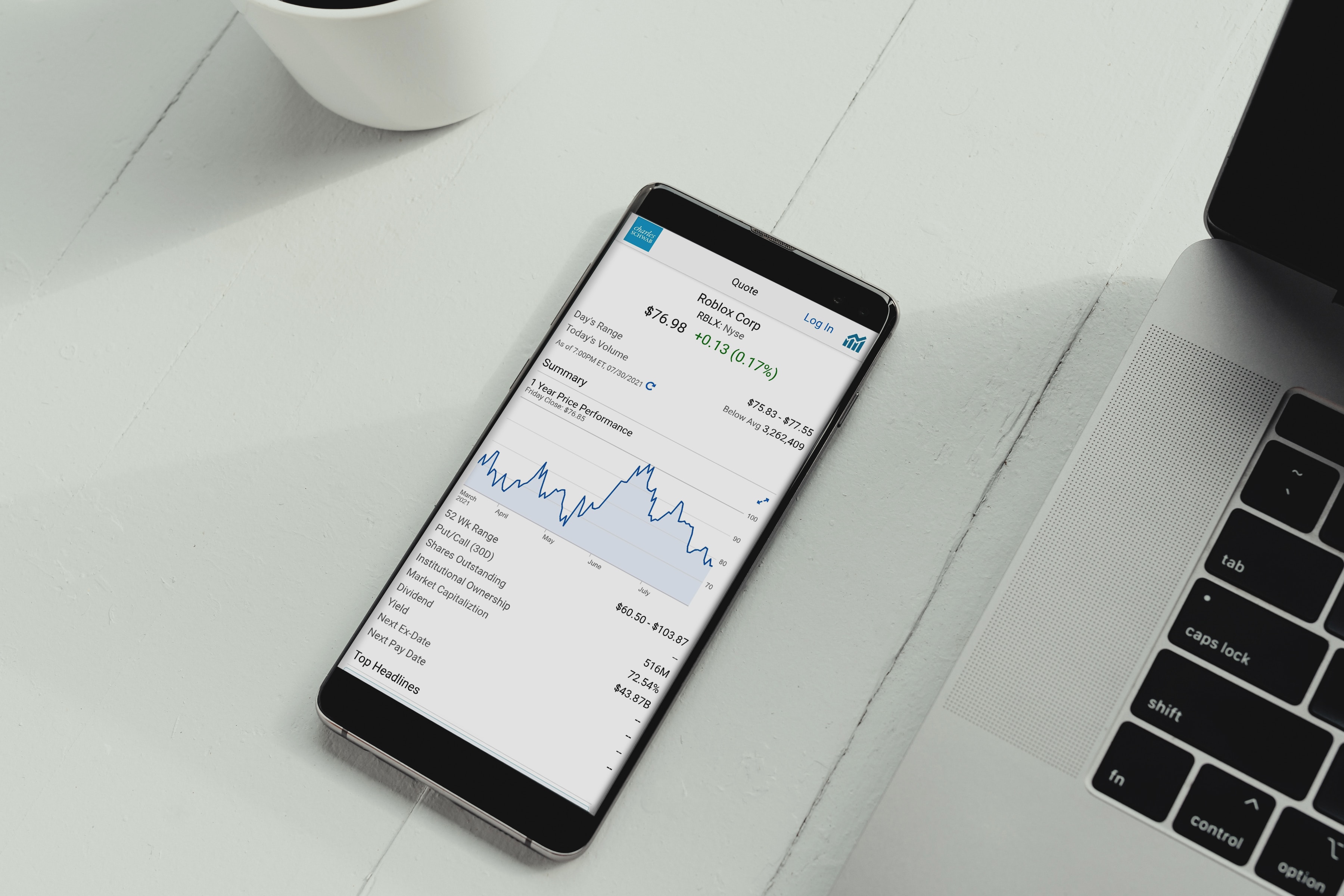Stocks vs. Bonds

Achieving financial prosperity is a common aspiration. Everyone wants to enhance their own life and the lives of their loved ones. While owning a business or investing in real estate may be beyond reach for many, allocating funds towards more accessible investment options, like stocks and bonds, is feasible for those with disposable income.
Historical evidence attests to the effectiveness of stocks and bonds in wealth accumulation. Vanguard's compiled data reveals that a 60/40 portfolio, consisting of 60% stocks and 40% bonds, yielded an average compounded annual return of 8.8% from 1926 to 2019. While it may appear modest, a consistent annual growth rate of 8.8% doubles your initial investment every nine years.
In the following sections, we will delve into the intricacies of the dilemma "share vs. bond", and highlight their distinctions. This comprehensive article aims to provide valuable insights on how to nurture and safeguard your wealth, addressing numerous inquiries you may have along the way. Let's get started!
Table of Contents
Stocks and Bonds: Definition
Stocks
Bonds
Stocks and Bonds: Comparison
EBITDA Analysis
Stocks or Bonds: What's Better?
FAQ
Stocks and Bonds: Definition
Stocks and bonds are the two main investing tools that people may use to increase their wealth.
So what is the difference between stocks and bonds? Stocks signify ownership in a corporation. You become a shareholder of a corporation when you buy its stocks, and you may therefore gain from the company's expansion and success. Your shares' value will improve if the firm performs well and its value rises. However, the value of your shares might drop, potentially leading to losses, if the firm has difficulties or sees a downturn in profitability. Stock investing gives the chance for capital growth and prospective dividends.
Bonds, however, are debt instruments that firms or governments issue in order to raise money. Purchasing bonds is similar to making a short-term loan to the issuer of the bonds. In exchange, the issuer guarantees that, on the bond's maturity date, it will pay back the principal sum, sometimes referred to as the face value or par value. Additionally, bonds make regular interest payments to bondholders, commonly referred to as coupon payments. Generally speaking, bonds are viewed as a more conservative investment than stocks, since they are less volatile. But there is still a chance that the value of bonds may vary due to things like adjustments in interest rates, the issuer's credit ratings, and the state of the market.
Stocks and bonds both contribute significantly to investment portfolio diversification and the accomplishment of long-term financial objectives. Before selecting how to divide up your funds between these two asset classes, it is crucial to thoroughly assess your investing goals, risk tolerance, and time horizon.
Stocks
Investing in stocks grants you partial ownership of a business. When you purchase stocks of a company, you acquire a stake in its ownership. As the company prospers and grows in value, the worth of your shares also increases over time. However, it is important to note that the opposite is true as well: if a business encounters challenges or experiences declining profits (or future profit prospects), the company's value and stock prices may decline, resulting in potential losses.
How Do I Make Money with Stocks?
The easiest and most accessible way to profit from stocks is to buy shares in reputable firms at reasonable prices and keep them for many years. Although equities are prone to short-term volatility, this is frequently due more to short-term stock market and economic mood than it is to specific corporate problems. The company's rise in profits per share, however, is the most important indicator of a stock's worth when expressed in years. A company's stock increases in value as it gets more lucrative.
A corporation will often pay dividends, or cash, directly to shareholders when they own stocks, making them excellent sources of income. Although not all stocks pay dividends, more established, stable businesses that earn more cash than they require to finance expansion and upgrades typically give investors their remaining capital back in the form of dividends.
Option contracts, which are agreements between investors to purchase or sell shares of a stock at a certain price in the future, are another kind of investment available to investors.
Types of Stocks
Common stock is, naturally, the most prevalent type of stock. When it comes to shareholder issues at the annual shareholder meeting, you often have a stake in the firm in which you own a portion. Several share classes are offered by certain corporations, with the main distinction being the voting rights. Alphabet shares, for instance, are divided into two classes, with GOOG owners having voting rights and GOOGL owners not.
Common stock and preferred stock are extremely dissimilar. With a redemption price, a fixed yield, and often a redemption date (meaning the corporation will refund investors the redemption value plus payments due), it is more like a bond. Although preferred shares have relatively little potential, they typically maintain their value. The benefit often comes in the form of a larger dividend yield than ordinary stock in the same firm, along with lower volatility and a lower risk of losses.
How Do I Buy Stocks?
It's never been simpler to buy stocks thanks to the abundance of trustworthy online brokers who provide low-cost (or no-cost) transactions and a variety of account types to suit your needs. Along with fractional investment, which enables you to invest a predetermined sum of money in a stock even if it represents less than one complete share, several brokers also provide very cheap or even no-fee trading.
Bonds
In contrast, bonds represent loans extended to companies or governments. Due to their nature as loans, they come with predetermined interest payments, a maturity date, and a face value that the borrower is obliged to repay. Bonds generally exhibit lower volatility compared to stocks. While they are not entirely risk-free, as a borrower's financial difficulties or default risk can cause bond values to decrease, bondholders have a higher priority in repayment during the worst-case scenario of bankruptcy liquidation, placing them ahead of other debtors and shareholders.
How Do I Make Money with Bonds?
In general, bond owners benefit from the yield they get. Bond values can change, declining in value as interest rates increase and rising in value as they decline. However, in general, if you purchase a bond at (or even below) face value and keep it until maturity, you will earn a return and receive your principal back.
Types of Bonds
-
The U.S. government issues Treasury bonds, notes, and bills, which have various maturity periods ranging from four weeks to 30 years. These bonds are widely regarded as the most secure bonds available globally.
- State and local governments issue municipal bonds, which are generally considered to be highly safe investments. Municipal bonds often offer higher yields compared to Treasury bonds.
- Private companies issue corporate bonds, and the safety level of these bonds depends on the financial strength and creditworthiness of the issuer. Investors receive higher yields as compensation for taking on additional risk associated with these bonds.
How Do I Buy Bonds?
Similar to how they do it with stocks, most online brokers provide a trading platform for buying and selling corporate and municipal bonds in both primary markets – those issued by the company – and secondary markets – those purchased from other investors. The Treasury Direct website allows you to purchase Treasury securities directly.
Bond exchange-traded funds (ETFs) or bond mutual funds, however, are how the majority of investors hold their bonds. These funds combine the money of investors to purchase and sell bonds; in exchange, a charge (referred to as an expense ratio) is collected. This fee covers costs and allows the fund to make a profit. You can purchase bonds through a bond ETF that specializes in the sort of bonds you wish to acquire.
Stocks and Bonds: Comparison

Now, let's examine the section "stocks and bond: differences", highlighting each point individually.
Equity vs. Debt
Investors who own stocks are said to be part owners of the firm. They might gain from the company's expansion and success as shareholders by receiving dividends and capital gains. Alternatively, bonds are debt securities in which investors lend money to a company or government. Bondholders are basically debtors who get periodic interest payments and their initial investment back when the bond matures.
Capital Gains vs. Fixed Income
As the value of the stock rises over time, stocks provide the possibility of capital gains. Selling their shares for more money than they originally paid allows investors to benefit. A percentage of the company's earnings that is paid to shareholders in the form of dividends is another feature of some stocks. In contrast, bonds give a fixed income in the form of recurring interest payments. Depending on how well the issuer's finances perform, bondholders get paid a fixed interest rate for the duration of the bond.
Inverse performance
When it comes to performance, stocks and bonds frequently have an opposite relationship. Bond prices often decrease as the price of stocks rises, and vice versa. Market circumstances, interest rates, and investor mood changes all influence this connection. By buying a mix of stocks and bonds, investors may reduce risk and perhaps profit from various market circumstances by diversifying their portfolios.
Taxes
Bonds and stocks are treated differently by the tax code. Depending on a number of variables, including the holding duration and tax location, capital gains and dividends from stocks may be taxed. Although interest from bonds is typically taxable, some bonds, such as municipal bonds issued by state and local governments, may provide tax benefits. Due to the fact that municipal bond interest is sometimes free from federal income tax and, in certain situations, state and local taxes, these bonds are appealing to investors in higher tax brackets.
Stocks, Bonds and Investing: The Risks and Rewards of Each
Because of the market's turbulence and the possibility for big profits or losses, stocks have higher risks. Based on variables including the state of the economy, developments in the industry, and corporate performance, the value of stocks can change considerably. On the other hand, bonds offer a more stable revenue stream and are typically seen as being less risky. Although bondholders are subject to the risk of the issuer defaulting, investing in stocks and bonds with good ratings or diversifying among multiple issuers might assist in reducing this risk. Bonds, however, often have smaller potential returns than stocks.
EBITDA Analysis
EBITDA eliminates the cost of the company's asset base, as well as its financing expenses and tax liabilities. EBITDA provides what some may consider to be a purer perspective of a company's underlying profitability and might offer a hint as to its capacity to produce free cash flow from operations by eliminating all non-operating expenditures.
In asset-intensive industries where corporations are frequently heavily indebted, EBITDA is particularly helpful as a profitability indicator. The annual depreciation/amortization and interest costs related to those assets can have a considerable negative impact on these organizations' bottom-line profitability.
EBITDA might offer a false image of a company's financial health, though, because it ignores these expenses. Taxes and interest are actual business charges that deplete a company's cash flow. And while depreciation and amortization are accounting strategies rather than actual cash expenditures, many assets do in fact lose value over time and must be replaced eventually. As a result, EBITDA may create the appearance that a firm is more lucrative than it actually is since it suggests that costs are lower than they actually are.
Stocks or Bonds: What's Better?
It's critical to keep in mind that stocks and bonds are financial instruments in your wealth-building (or maintenance) toolkit, just like money, real estate, precious metals, cryptocurrencies, and a long list of other assets. Utilizing asset allocation effectively is crucial to achieving your goals.
What do we know about bonds and stocks as instruments for investing money? In the short term, bonds are more reliable, but over the long run, they often underperform equities. The opposite is true for equities, which, despite their potential for volatility (especially during times of economic turbulence), have historically produced greater wealth-generating returns when held for five years, a decade, or even longer. That is especially true if you often add new funds and make investments.
In general, the further away from a financial objective you are, the more stocks and the less bonds you should purchase. But as you get closer to that objective – such as retirement, paying for a child's school, etc. – you should put more of your assets into bonds. The goal is to use bonds to safeguard your capital while using the capacity of equities to grow wealth over the long run.
FAQ
Still have any questions regarding stocks and bonds? If so, let's take a closer look at the FAQ list provided below. There, you'll definitely find the answers to all your remaining questions.
What's the deal with bonds?
When they need to raise money, governments and businesses issue bonds. By purchasing a bond, you are effectively lending the issuer money. In exchange, they commit to repay you the face amount of the loan on a particular date and to make periodic interest payments – typically twice a year – along the way.
Are bonds safer than stocks?
Stocks tend to be riskier than bonds because of the multiple factors that might cause a company's business to deteriorate. Nevertheless, bigger profits may be possible with this heightened risk.
Which is better to invest in – stocks or bonds?
Bond returns have often been lower than those of equities. The Securities and Exchange Commission (SEC) of the United States estimates that over the long run, the stock market has generated annual returns of around 10%. Bonds, on the other hand, often yield far smaller yields. Bonds typically yield a 5% yearly return.
Is it possible to lose on bonds?
A bond might cost you money if you sell it before it matures for less than you paid or if the issuer stops making payments. Before making a purchase, it's worth considering all the risks.
Can the state not redeem bonds?
An extremely uncommon scenario would be for a government to be unable to fulfill its bond obligations. Sovereign default refers to this circumstance. Sovereign defaults are nevertheless very rare, and the majority of governments place a high priority on fulfilling their debt commitments in order to preserve their reputations in the financial markets.
What do stocks give us?
Stocks provide investors ownership in a business, a cut of its earnings, and the chance for capital growth. Additionally, investing in stocks may provide you the chance to get dividends, which are sums of money that a business distributes to its shareholders from its earnings. Individuals can take part in the expansion and prosperity of businesses by investing in stocks.
Where do stocks come from?
Initial public offers (IPOs) or subsequent offerings are how corporations issue their stock to the public. During an IPO, a firm initially sells shares to the general public, enabling investors to buy those shares. When a business needs to acquire more money by selling more shares, subsequent offers, including secondary offerings, may take place. Stocks can be bought and sold by investors once they are issued and are exchanged on stock markets.


)


